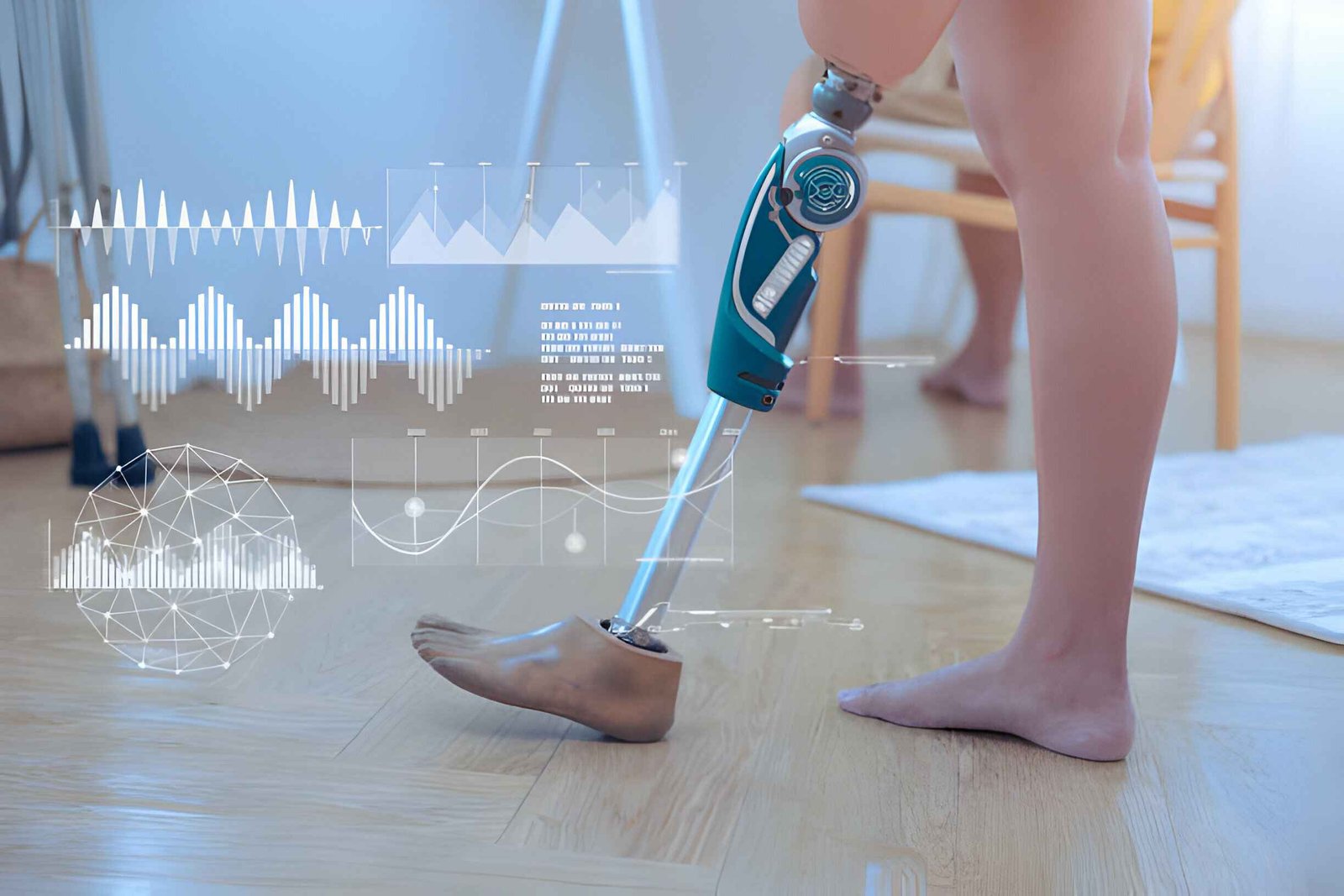The world is on the cusp of a new technological revolution that promises to reshape industries and redefine human capabilities, and unlock unprecedented opportunities. From artificial intelligence (AI) & machine learning to blockchain, quantum computing, and biotechnology, a convergence of breakthrough innovations is fueling what can be described as a new technology boom. In this exploration and we’ll delve into the key technologies driving this boom and their potential impact across various sectors, & the implications for society as a whole.
Artificial Intelligence and Machine Learning
Artificial intelligence and machine learning are at the forefront of the new technology boom. These technologies, which involve the development of systems that can learn from data & make intelligent decisions, are revolutionizing industries such as healthcare and finance, manufacturing, & transportation.
In healthcare and AI-powered diagnostic tools are enabling early detection of diseases and personalized treatment plans, and improved patient outcomes. Machine learning algorithms analyze vast amounts of medical data to identify patterns and trends that human experts might miss and leading to more accurate diagnoses and treatment recommendations.
In finance, AI algorithms are transforming the way banks and financial institutions operate. From fraud detection and risk management to algorithmic trading and personalized financial advice, AI is streamlining processes, reducing costs, and improving decision-making.
The rise of autonomous vehicles is another example of the impact of AI and machine learning. Companies like Tesla, WeMo, and Uber are developing self-driving cars that can navigate roads and make split-second decisions, and interact with other vehicles & pedestrians—all thanks to advanced AI algorithms.
Blockchain and Cryptocurrencies
Beyond cryptocurrencies, blockchain has applications across industries such as supply chain management, healthcare, real estate, & voting systems. For instance and in supply chain management and blockchain can track the journey of products from manufacturer to consumer and ensuring authenticity, reducing fraud, & improving traceability.
In healthcare, blockchain technology can securely store & share patient records, facilitate medical research by anonymizing data, & streamline insurance claims processing. By eliminating intermediaries and centralizing data management and blockchain has the potential to revolutionize healthcare systems worldwide.
Real estate is another sector benefiting from blockchain innovations. Through tokenization and real estate assets can be divided into digital tokens and allowing fractional ownership and increased liquidity, and easier transfer of property rights. This democratization of real estate investment opens up opportunities for a wider range of investors.
Quantum Computing
Quantum computing represents a paradigm shift in computational power and with the potential to solve complex problems that are beyond the capabilities of classical computers. Unlike classical computers and which use bits to represent information as either 0 or 1, quantum computers use qubits and which can exist in multiple states simultaneously due to quantum superposition & entanglement.
The applications of quantum computing span diverse fields such as cryptography and drug discovery, climate modeling, and optimization problems. For example, quantum computers can break existing cryptographic algorithms and leading to the development of quantum-resistant encryption methods to secure data in a post-quantum world.
In drug discovery and quantum computing can simulate molecular interactions with unprecedented accuracy, accelerating the discovery of new drugs & personalized medicine. Similarly, quantum computers can optimize complex systems, such as logistics networks or financial portfolios and by finding the most efficient solutions among a vast number of possibilities.
While quantum computing is still in its early stages, major tech companies like IBM, Google, & Microsoft are investing heavily in research & development to bring quantum supremacy—the point at which quantum computers outperform classical computers—closer to reality.
Biotechnology and Genetic Engineering
The intersection of biology & technology is driving remarkable advancements in biotechnology & genetic engineering. From gene editing tools like CRISPR-Cas9 to synthetic biology and personalized medicine and these innovations hold the promise of curing diseases, enhancing agricultural productivity, & addressing environmental challenges.
CRISPR-Cas9, in particular and has revolutionized genetic engineering by allowing precise modifications to DNA sequences. This technology has applications in treating genetic disorders and developing disease-resistant crops, & creating biofuels from renewable sources.
Personalized medicine, enabled by advances in genomics & data analytics, tailors healthcare interventions to individual patients based on their genetic makeup, lifestyle, & environmental factors. This approach leads to more effective treatments, reduced side effects, & improved patient outcomes.
In agriculture, biotechnology is driving the development of genetically modified organisms that can withstand pests, droughts, & diseases, thus increasing crop yields and ensuring food security for a growing global population. Additionally and bioremediation techniques leverage biotechnology to clean up environmental pollutants & restore ecosystems.
Ethical and Societal Implications
As we witness the rapid advancement of these transformative technologies and it’s crucial to consider their ethical and societal implications. Issues such as data privacy and algorithmic bias, job displacement due to automation, & unequal access to technology must be addressed to ensure that the benefits of the new technology boom are equitably distributed.
Data privacy and security are paramount concerns in an era where vast amounts of personal data are collected and analyzed, and monetized. Striking a balance between innovation & privacy rights requires robust regulations, transparent practices, & user empowerment in controlling their data.
Algorithmic bias, wherein AI systems replicate & amplify existing biases in data, can lead to discriminatory outcomes in areas like hiring, lending, and criminal justice. Mitigating bias requires diverse & inclusive datasets, algorithmic transparency, & ongoing ethical audits of AI systems.
The automation of jobs, driven by AI, robotics, & advanced manufacturing technologies and raises questions about workforce reskilling, job displacement, and socioeconomic inequality. Governments, businesses, & educational institutions must collaborate to provide lifelong learning opportunities and upskill workers for new roles, and ensure a just transition to a technology-driven economy.
Moreover, ensuring equitable access to technology & digital literacy is essential to prevent widening the digital divide between affluent & underserved communities. Bridging this gap requires investments in infrastructure, education, and inclusive innovation policies that prioritize diversity & inclusion.
Conclusion
The new technology boom represents a pivotal moment in human history and where unprecedented advancements have the potential to address global challenges and improve quality of life, & drive economic growth. From AI and blockchain to quantum computing and biotechnology and the convergence of these technologies is reshaping industries, redefining human capabilities, & unlocking new frontiers of innovation.
However, realizing the full potential of these technologies requires navigating complex ethical and regulatory, and societal considerations. By fostering collaboration among stakeholders and promoting responsible innovation, & prioritizing inclusivity and we can harness the power of the new technology boom for the benefit of all humankind.





